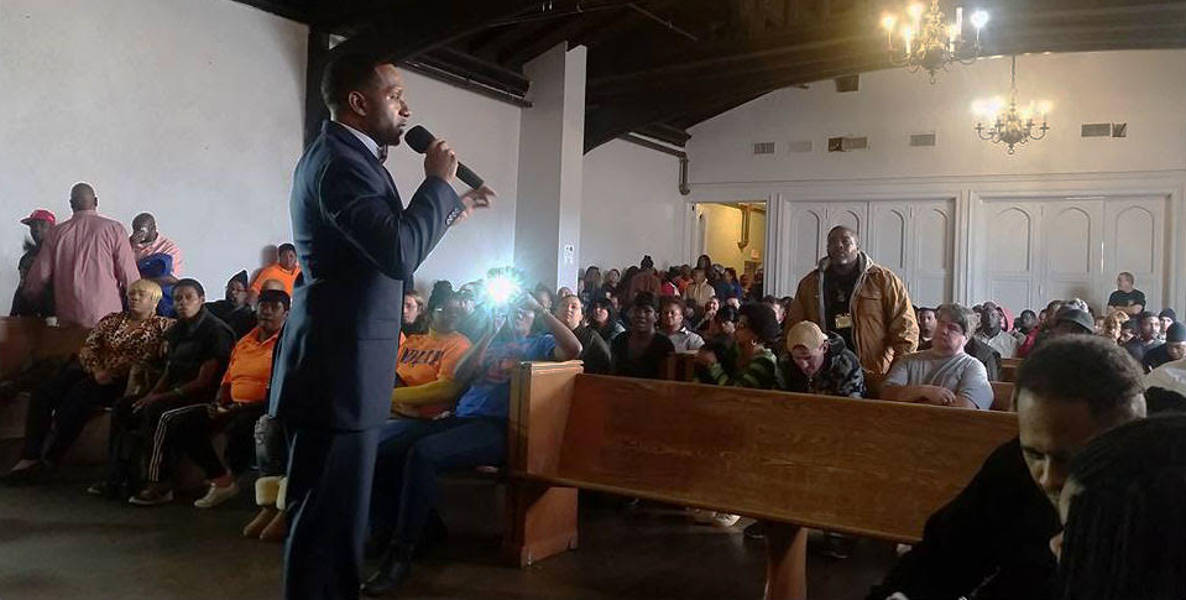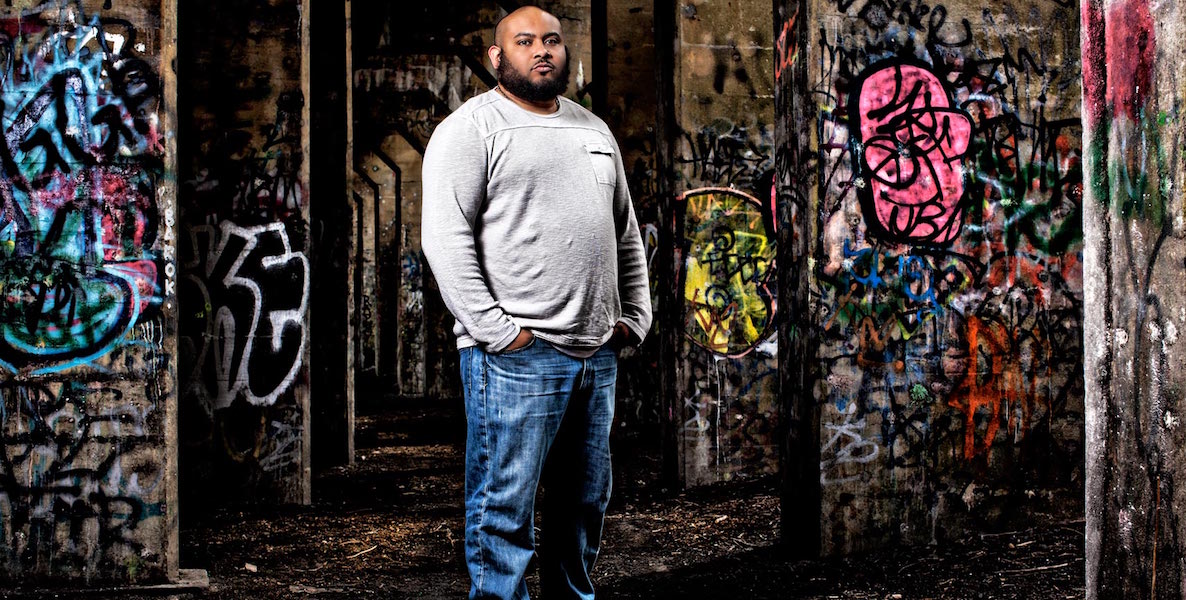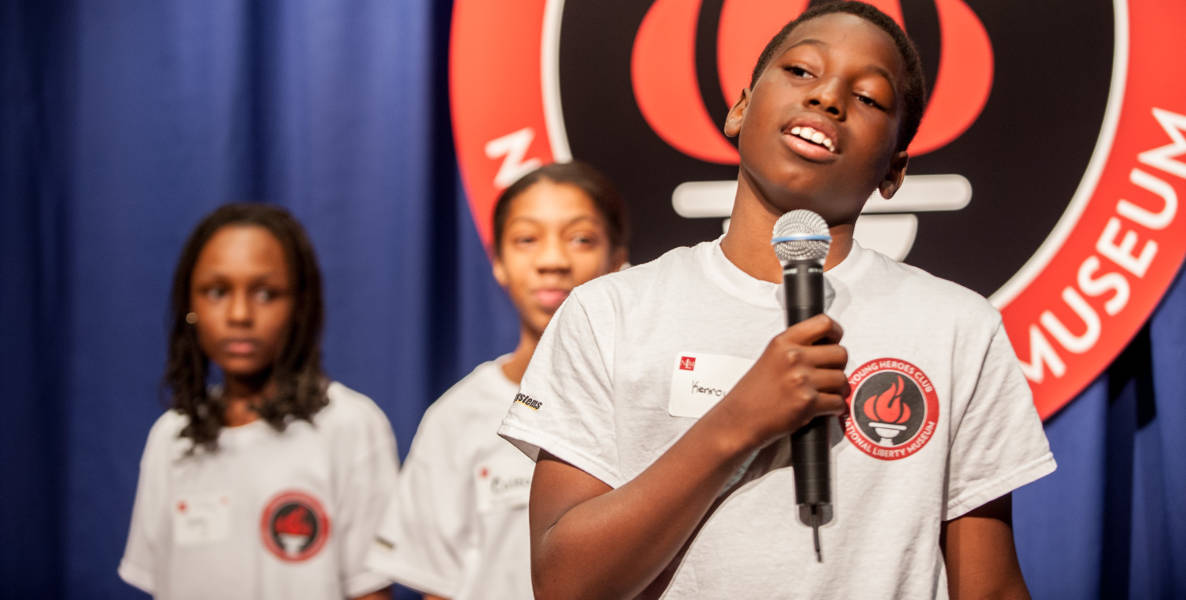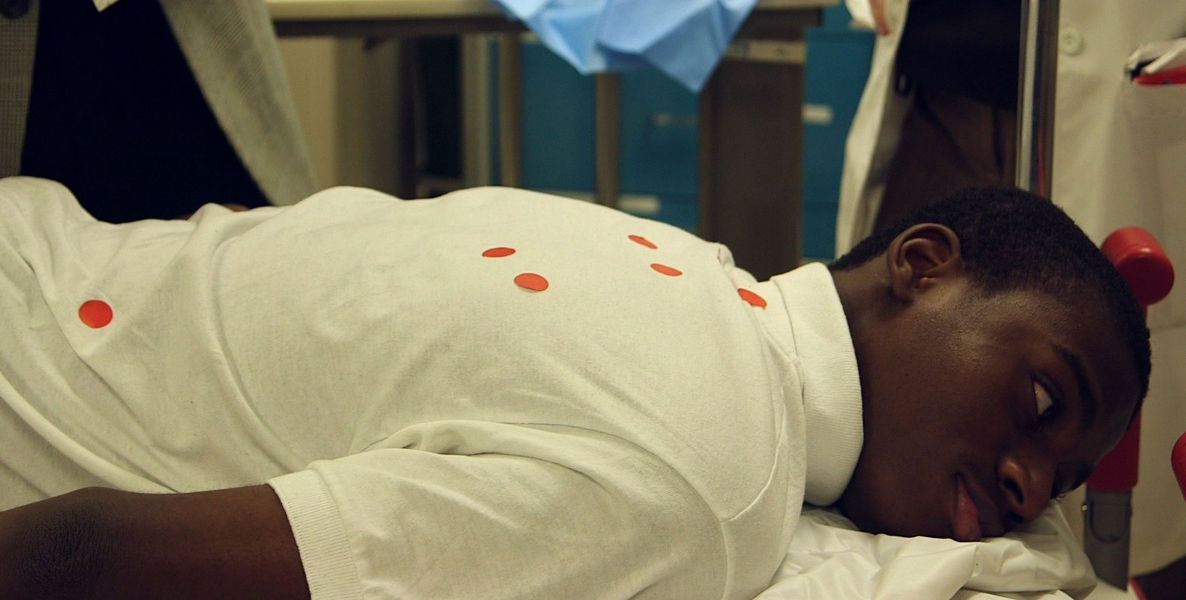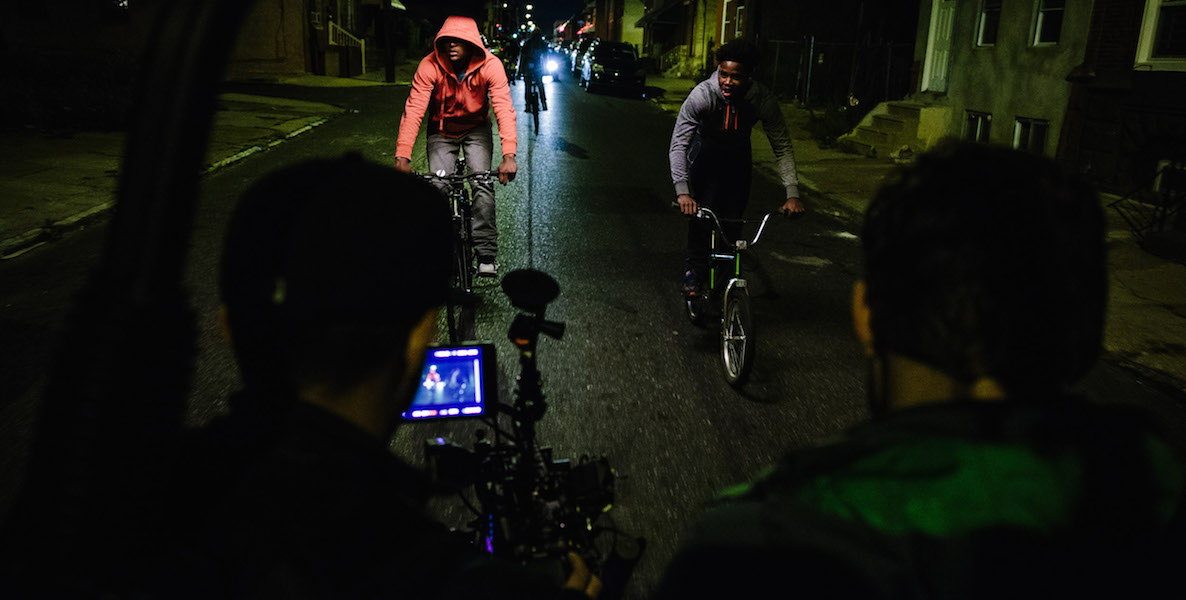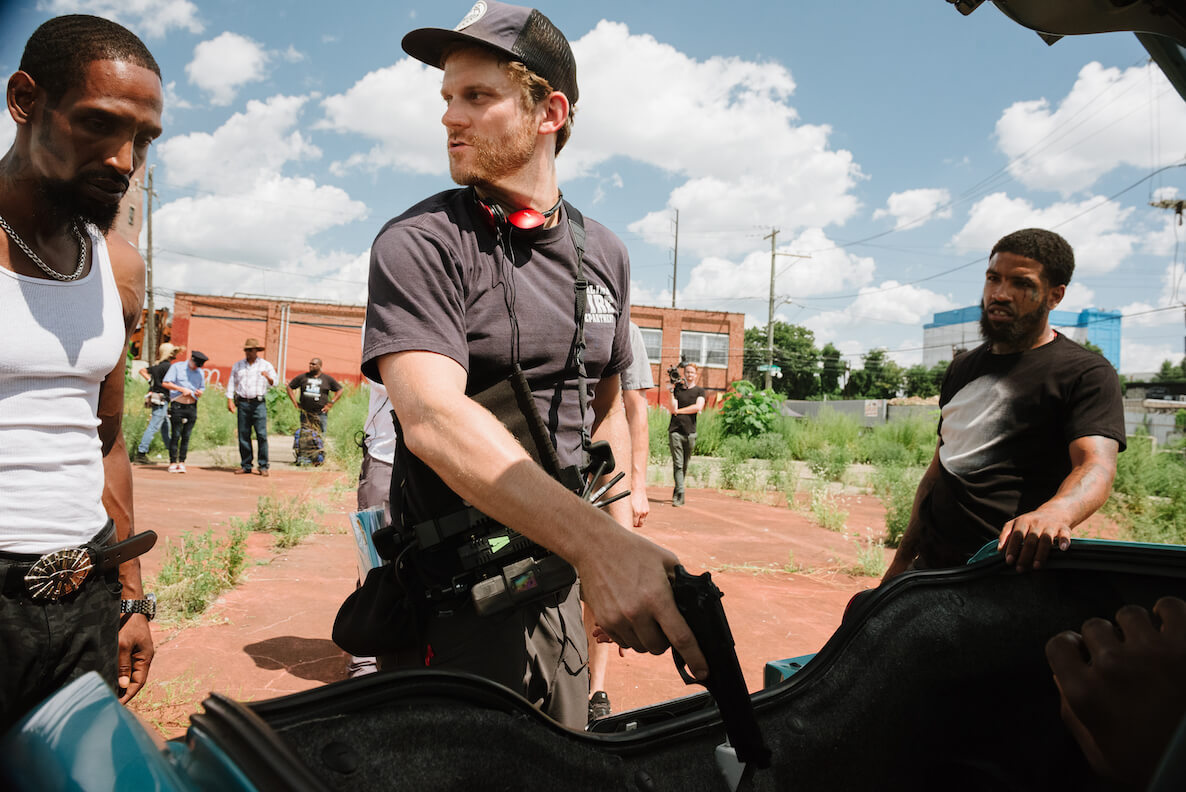When Ricky Staub started his commercial film business, Neighborhood Film Company, he located it in the North Philadelphia neighborhood of Brewerytown out of convenience. It was near to where he was teaching a class, at the Honickman Learning Center, and a culturally appropriate place for the socially conscious arm of the business, an eight-month apprenticeship program teaching professional skills to one to three formerly incarcerated people each year.
But over the years, as he lived and worked in the neighborhood, Staub discovered something else about North Philadelphia: He loves it. “It’s so culturally rich and diverse,” Staub says. “A lot of people think it’s scary. Visually, I think it’s beautiful, so rich in history. There is a fabric to that community that is unlike anywhere else.”
Now, Staub has put that love to film, in a 15-minute short he calls The Cage, about Zeke, a young basketball player encountering poverty and violence—but also beauty and love—in his neighborhood. The movie, which he filmed last fall in North Philadelphia, with a mostly amateur local cast, was released online today.
The Cage is the first time Staub has filmed a story entirely of his own creation. For the last several years, the one-time Hollywood aspirant has grown a company that focuses on commercial films for clients such as Anthropologie, Reebok, Nike and Coca-Cola.
In 2016, Neighborhood spent several months traveling the country for Jeep and for Comcast, working on a series of TV commercials to combat its poor customer service reputation. And because they have so many West Coast clients, early last year Staub and his business partner Dan Walser moved back to Los Angeles, to open a satellite office.
They still consider Philadelphia their hub, out of which they run their apprenticeship program; this year’s apprentice spent half his time in Philly, and the other half in L.A.
Neighborhood’s success has been gratifying to Staub, who started his commercial career while living in a ProjectHOME shelter, among homeless men whose experiences helped shape the apprenticeship program that goes hand in hand with the business. (While there, Staub learned of the absurdity of reentry programs that don’t give the recently incarcerated much in the way of usable skills.)
But the advertising world does not offer him much opportunity to tell a story that felt personal to him. “I felt like I’d never made something that truly reflects what I care about,” Staub says. “I don’t have anything that shows what I can do, what I care about, my style.”
As he considered his first passion project, Staub wrote a list of what he cared about. At the top was North Philadelphia. He intends his film to capture not just what he considers the visual wonderland, but to be about—in essence—the neighborhood where he lived for four years.
Narrated by Zeke’s father in prison, The Cage is both literal and metaphorical, ending with a dream sequence in which the 15-year-old plays against himself on a rooftop basketball court, trying to beat the clock before a jungle of vines grow up the sides of the court and suffocates him. The movie, released with licensing company Filmsupply, includes an animated sequence by Jeremy Fernsler, a digital compositor who worked on The Girl on the Train and The Road.
“Nothing changes, but he starts to see things differently,” Staub says. “He’s entrenched in these vines, but everything starts to bloom, in those flowers that show up everywhere in the neighborhood. Zeke starts experiencing everything in a new light, and sees beauty that can come out of all this darkness. He sees there’s no pure good and no pure evil; it’s twisted up together.”
Staub is conscious of whom he is: A young successful white man whose talents, social capital and experiences allowed him to choose this neighborhood as a place to live and work, and then to leave it again for Los Angeles, when his business demanded it. So the first thing he did when he finished the script was give it to Andrew Williams, Neighborhood’s apprentice for the year, who grew up in the area. “That’s some real fucking shit right there,” Williams said. “If you make that, it will mean a lot to a lot of people. No one’s ever painted a picture of what our life in Philly is like.”
He also brought the script to his former neighbors, casting almost the entire movie with residents whose emotional experiences—if not actual experiences—resonate with his script. In particular, Staub says, he knew that a former neighbor, Iesha Edwards, who has a son in prison, would understand the role of Zeke’s mother.
Staub says The Cage has moved him in ways he could not have predicted. One shot in the movie, for example, takes place in prison and Neighborhood Films got permission to shoot it in Curran-Freehold Correctional Facility, where it so happens activist Michael “OG Law” Tambon (who plays Zeke’s father) and Williams both served time. “It was amazing to see how edifying and empowering it was for them to go back with the film,” Staub says. “The movie was making my heart explode every day.”
RELATED STORIES FROM THE CITIZEN
- On the heels of the release of Concrete Cowboy on Netflix, Neighborhood Film Company’s Ricky Staub and OG Law check in about telling an authentic Black story, saving Philly’s urban riders—and having Idris Elba on your side
- With the hit documentary The Social Dilemma and her latest children’s book, author, filmmaker and philanthropist Hallee Adelman continues to empower young people
- Michael Ta’Bon spends months at a time in a makeshift jail cell in public places. His message? Choose peace.
- Ricky Staub was on his way to becoming a Hollywood giant. So why is he in Brewerytown mentoring the recently incarcerated?
- Local film experts share 30+ of their favorite flicks to stream during the pandemic



